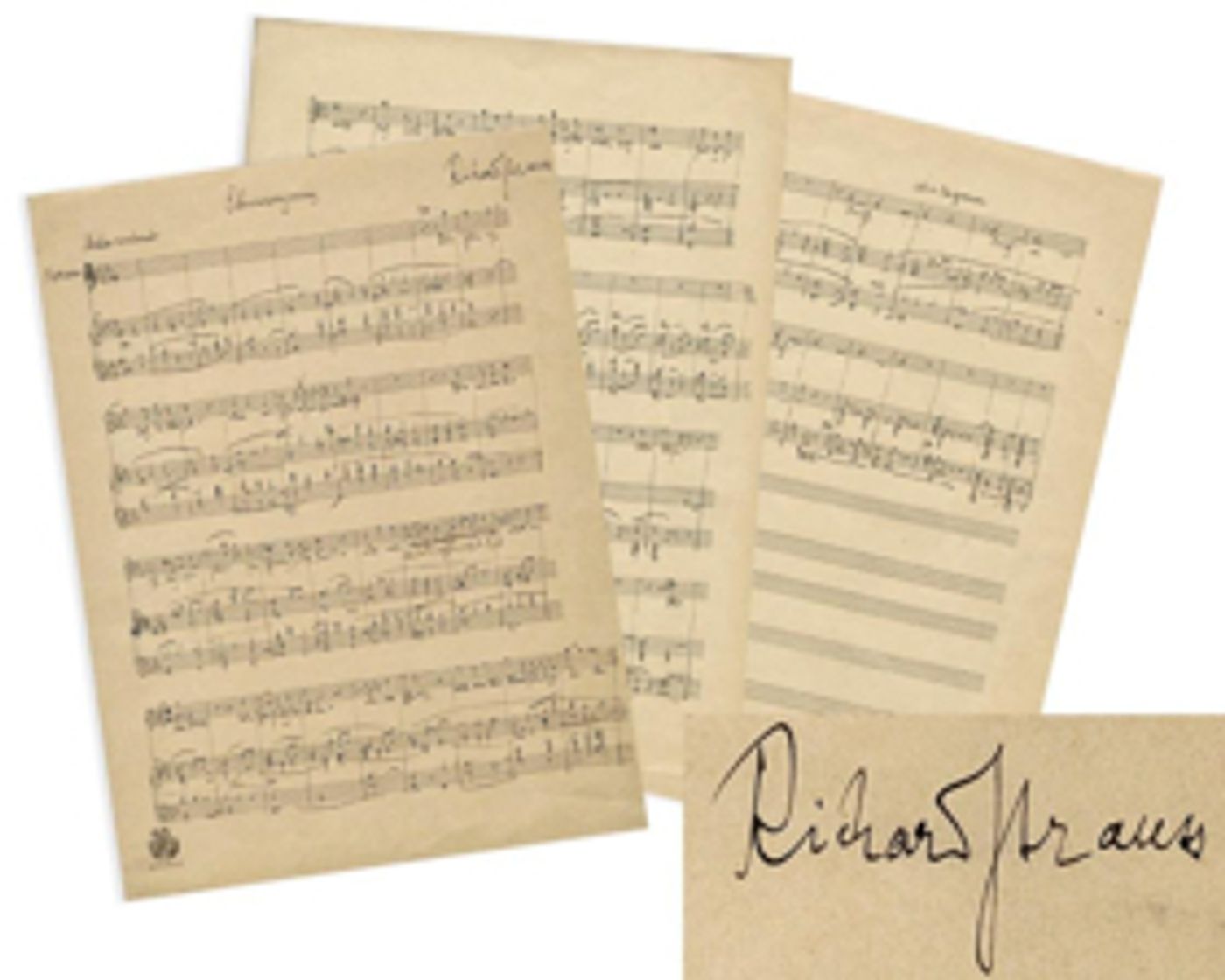Richard Strauss' Handwritten Manuscript For 'Die Schweigsame Frau' To Be Auctioned
By: Stephi Wild Jul. 23, 2018

German composer Richard Strauss' manuscript for the final scene of his 1935 opera Die schweigsame Frau (The Silent Woman) will be auctioned by Nate D. Sanders Auctions on July 26, 2018.
Strauss co-wrote the opera with Austrianlibrettist Stefan Zweig. The German composer handwrote the vocal score for the bass voice, which was sung by the lead character Sir Morosus, who sang, ''Wie schon ist doch die musik'', or ''How beautiful music is." The Nazis viewed Strauss as a German cultural treasure. Strauss cooperated with the Nazis and became president of the Reichsmusikkammer in November 1933. However, he did it as an opportunist and to protect himself and his family. Zweig explained Strauss' actions, "to be co-operative with the national socialists was furthermore of vital interest to him, because in the national socialist sense he was very much in the red. His son had married a Jewess and thus he feared that his grandchildren, whom he loved above all else, would be excluded as scum from the schools; his earlier operas tainted through the half-Jew Hugo von Hofmannstahl; his publisher was a Jew. Therefore, to him it seemed more and more imperative to create support and security for himself, and he did it most perseveringly."https://natedsanders.com/Richard_Strauss_Signed__Handwritten_Musical_Manusc-LOT49836.aspx
An industry leader in documents and autographs, Nate D. Sanders Auctions has conducted auctions in Los Angeles since 1990 and now holds major auctions on a monthly basis. Owner Nate Sanders is recognized for his knowledge of sports, historical and Hollywood memorabilia. To learn more visit natedsanders.com
Videos
